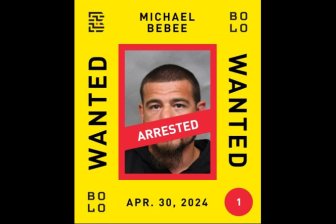TORONTO – They have been spat upon, cross-checked in the head and sucker-punched. They have suffered sexual and homophobic comments and been grabbed by the throat.

Players have fired pucks at them and parents have threatened them, sometimes making good on their violent promises.
Those are just some of the abuse listed by hockey referees – almost all from Ontario amateur leagues – who took part in a survey whose findings are published in the Clinical Journal of Sports Medicine.
The study titled “Violence in Canadian Amateur Hockey: The Experience of Referees in Ontario” was co-authored by Dr. Charles Tator, a Toronto neurosurgeon at Toronto Western Hospital who is founder of the group ThinkFirst Canada – a charitable organization dedicated to the prevention of brain and spinal cord injuries.
The other co-authors were Dr. Alun D. Ackery and Dr. Carolyn Snider.
The study’s objective was “to determine the perception and roles of referees about violence and injury in hockey games.”
“We found that hockey referees in Canada perceived a lack of discipline and obeying of hockey rules leading to an increased aggression and injury,” the study concluded.
“Referees suggest that they are both physically and verbally abused. Referees feel that coaches are the most important individuals for determining player safety. This potential lack of respect and hostility for referees from coaches, parents, and fans creates an environment that may put all on-ice participants at higher risk for injury.
“These responses give new insight on the potential need to give referees more support, authority to discipline, and ability to educate participants with respect to on-ice safety.”
The authors used a web-based study, contacting 21 referees-in-chief from all provincial and territorial Hockey Canada organizations as well as several private adult hockey leagues from April 1 to May 18, 2010.
Nine agreed to distribute the survey link to their referees. A total of 632 referees responded anonymously to the survey, with 92 per cent from Ontario.
The NHL did not allow its officials to participate, the authors said.
Officials ranged from children’s recreational leagues to junior/semi-pro.
There were pluses and minuses. More than 80 per cent of the ref respondents said they enjoyed the exercise or contributing to the game. Some 62 per cent enjoyed the “fellowship and friendship” of refereeing.
But 92 per cent said refs are targeted by verbal abuse and 46 per cent said refs are threatened by physical violence.
Players, coaches, parents and fans were listed as the source of abuse.
Some 71 per cent said games with verbal or physical abuse of refs by coaches, fans and parents lead to an increasing risk of injury to on-ice participants.
Some 374 respondents listed specific examples that ranged from a parent breaking a referee’s finger to a fan threatening to “carve out a linesman’s eye” and an ejected player head-butting an official.
The authors noted there was “no active observation done in this study to either confirm or refute the opinions of the referees.”
But they also said this was to their knowledge the first study to measure referees’ perceptions about hockey aggression, violence and safety.
“The debate about aggressive and violent play in hockey is a topic of considerable interest in Canada, with polarization between those trying to maintain the excitement and action in the game and those wanting to keep the participants safe,” the study concluded.
“This present study demonstrates the need for further examination of the role of the referee in hockey safety, with measures initiated to allow referees more control and authority. The referees indicate that more needs to be done to enhance player safety and that this must involve enhanced education of participants, coaches, leagues, and parents.”



Comments